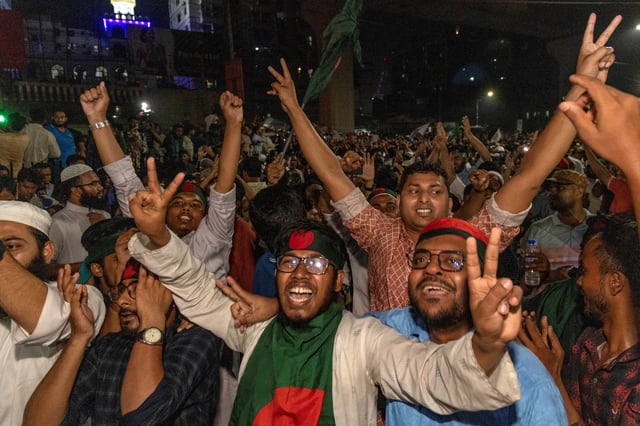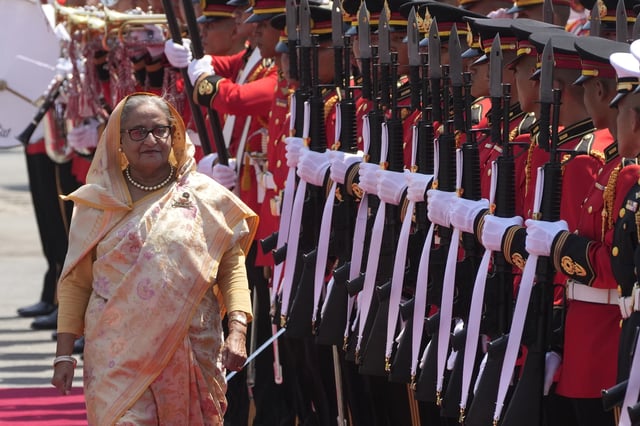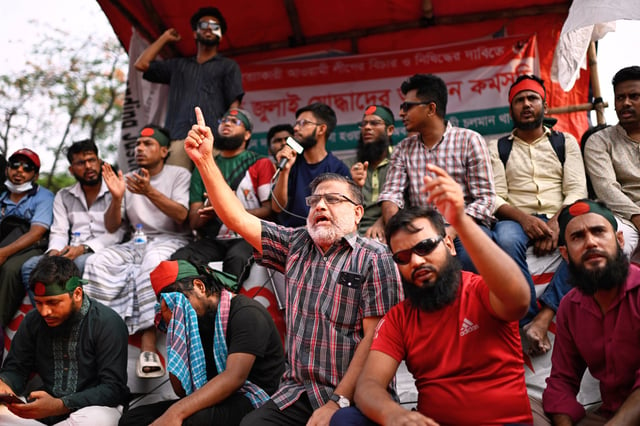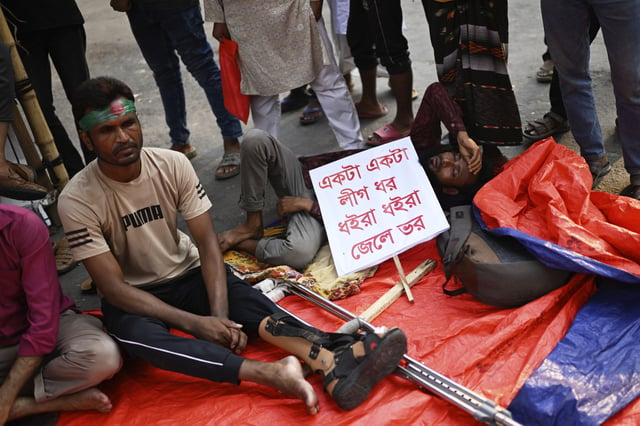Overview
- The Awami League, Bangladesh's oldest political party, has been officially banned under a revised Anti-Terrorism Act, with all activities prohibited until the completion of a war-crimes tribunal trial.
- President Mohammed Shahabuddin issued an ordinance amending the anti-terror law to ban publicity for individuals or organizations charged under the law, including press statements and social media content.
- The Election Commission has suspended the Awami League's registration, barring it from contesting future elections unless the ban is lifted and registration restored.
- The interim government justified the ban as necessary for national security and to protect witnesses and activists tied to the 2024 uprising that ousted Sheikh Hasina's regime.
- Awami League leaders have rejected the ban, calling it undemocratic and vowing to defy restrictions, while international observers warn of rising political polarization and threats to multi-party democracy.



